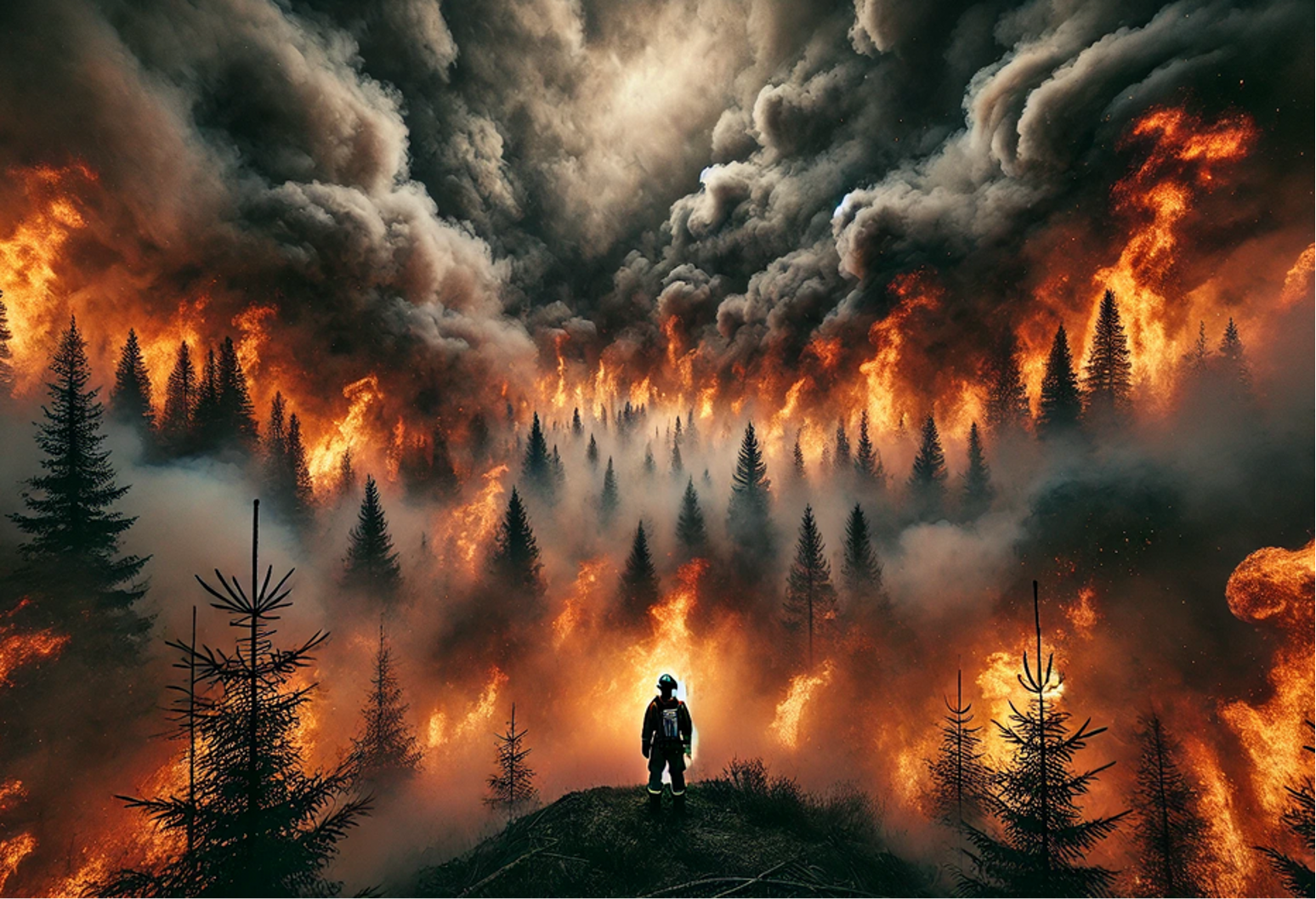There are times when it feels like we’re constantly putting out fires—reacting to problems, managing crises, and addressing urgent issues. In these moments, it’s hard to step back, take a deep breath, and focus on the bigger picture.
The horizon holds our long-term goals and aspirations and they will vanish if we cannot get beyond our daily struggles.
This metaphor of “fighting forest fires” resonates across fields—whether in business, personal life, or even creative energy-sector pursuits.
When all energy is directed toward short-term fixes, the future becomes a blur, and strategic thinking falls by the wayside. But how do we escape this cycle? How do we stop reacting and start planning for what lies beyond the immediate blaze?
The All-Consuming Nature of Crises
When you’re in crisis mode, everything feels like an emergency. Deadlines pile up, stresses elevate, and there’s a nagging pressure to act quickly and decisively. You can’t afford to let one fire get out of control, so you jump from one to the next, sometimes without thinking.
The problem with this approach is that it’s exhausting and unsustainable. Like a firefighter facing endless flames, you can only go so long before burnout becomes inevitable. The sheer mental load of juggling urgent matters leaves little room for creativity, reflection, or behaving in alignment with long-term plans.
You might keep the business running or meet the day’s demands, but it comes at the cost of vision and growth.
The Cost of Neglecting the Horizon
When all focus is on the immediate, the future becomes a worrisome afterthought. This can lead to negative consequences:
Lack of Strategic Growth: If you’re always firefighting, you’re not thinking about how to evolve. Organizations and individuals alike need space to strategize, innovate, and consider where they want to go. Without that, growth stalls, and opportunities are missed.
Reactive Decision-Making: When every decision is made under pressure, long-term goals are sacrificed. You make choices based on the immediate need, not necessarily on what’s best for your future self, your career, or your company.
Burnout: Constantly reacting to problems is draining. Burnout has impact beyond the individual, affecting team morale, productivity, and the overall health of an organization… and damaging relationships. When people are exhausted, creativity and enthusiasm suffer.
Shifting Focus from Crisis to Long-Term Vision
The first step in seeing the horizon again is recognizing when you’re caught in the firefighting cycle. This requires mindfulness and a willingness to step back, even when it feels like everything is urgent. Here’s how to begin shifting your focus:
Identify the Source of the Fires: Take time to assess why you’re constantly in reactive mode. Is it because of poor planning? A lack of resources? Are there recurring issues that can be fixed permanently? Understanding the root causes of your daily fires can help you implement better systems or delegate tasks more effectively.
Create Space for Strategic Thinking: Whether it’s setting aside an hour a week or blocking out an entire day each month, it’s critical to carve out time for big-picture thinking. Use this time to reflect on your long-term goals, assess your progress, and brainstorm future strategies. During these moments, steel yourself against the urge to focus on immediate concerns…let this time be solely dedicated to looking ahead.
Prioritize and Delegate: Not every problem requires your direct intervention. Learning to delegate tasks and trust others to manage certain issues frees you up to focus on more strategic matters. It’s essential to recognize that letting go of control is often the first step to getting back in control of your time and focus.
Implement Preventative Measures: Sometimes firefighting is inevitable, but often it’s a sign of deeper issues that haven’t been addressed. Consider implementing processes or structures that prevent fires from starting in the first place. This could be better project management tools, clearer communication channels, or more robust risk management strategies.
Keeping the Horizon in View During Difficult Times
Even when we do everything right, crises will still happen. The key is learning how to manage these challenges without losing sight of the bigger picture. Here are tips for staying future-focused even during difficult times:
Break Long-Term Goals Into Smaller Steps: If your horizon feels too distant or unattainable during busy periods, break your big goals into smaller, actionable tasks. This allows you to make progress, even incrementally, while managing immediate concerns.
Find Time to Recharge: Taking care of yourself is essential. Stepping away from the chaos, even for a short break, can restore perspective. When you’re burnt out, it’s impossible to see past the immediate crisis. A fresh mind is more capable of finding solutions, both short- and long-term.
Reflect on Past Challenges: When you’re overwhelmed by the present, remember that you’ve overcome challenges before. Looking back at how you handled previous fires can give you confidence and remind you that even in difficult times, progress is possible.
Communicate the Vision to Others: If you’re leading a team, sharing the long-term vision can motivate and align everyone, even during tough times. When people understand the broader goals, they’re more likely to stay engaged and focused, and less likely to feel trapped in the day-to-day firefighting.
Seeing Through the Smoke
Yes – it’s tough to see the horizon when you’re in the middle of a forest fire. The smoke clouds your vision, and all you can think about is how to put out the blaze. But it’s crucial to remember that the fires are temporary, and the horizon is always there, waiting for you.
By shifting your focus from constant crisis management to long-term planning, you can regain control of your time, energy, and goals. The fires will not go away entirely, but when you balance immediate challenges with future aspirations, you’ll realize you’re building something that will thrive long after the fires have burned out.

